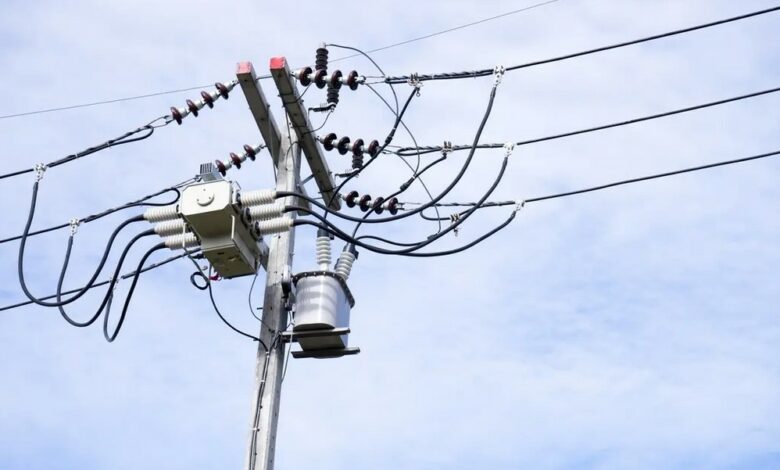
MARYLAND — With severe storms moving across Maryland Monday, officials warned of 60 to 80 mph winds and hail that could cause power outages. More than 90,000 utility customers were without power as of 11:50 p.m.
At 7:20 p.m., the PowerOutage.US site said 132,791 utility customers were without power across Maryland. The most outages were in Carroll County with about 43,380; followed by 36,471 outages in Baltimore County, and 17,752 outages in Harford County.
Howard, Anne Arundel, Montgomery and Prince George’s counties all reported power outages that totaled between 2,000 and 3,800 customers.
Here’s how to track outages, report downed lines and keep your electronics safe.
Residents can check Baltimore Gas & Electric’s outage map after the storm to see if there are widespread outages.
PEPCO, which serves much of Prince George’s and Montgomery counties, asked customers who see a downed wire to report it at 1-877-737-2662. Do not touch or try to remove the downed lines and consider all downed lines as energized and extremely dangerous.
Harford County residents who are Delmara Power customers can report an outage, check an outage status, and track your outage at Experiencing an Outage | Pepco – An Exelon Company.
In preparation for potential power outages, individuals should prepare or update their emergency kits. Ensure you have flashlights, batteries, and other items to endure periods without power.
- Turn the refrigerator and freezer to the coldest setting in anticipation of a power outage. Open the door only when necessary and close quickly. Frozen food in a half-full freezer should remain safe for up to 24 hours, and in a full freezer, up to 48 hours.
- During a power outage use flashlights and battery-powered lanterns for light. Avoid using candles which pose a fire risk.
- Ensure a supply of water for sanitary purposes such as personal cleaning and flushing toilets. Fill a bathtub or other large container with the water. This is particularly important for those whose water runs off of an electrical system.
Important Maryland Utility Numbers Include:
- PEPCO: 1-877-737-2662
- Baltimore Gas and Electric (BG&E): 1-877-778-2222 or 1-800-685-0123
- Delmarva Power: 1-800-898-8042 or Experiencing an Outage | Delmarva – An Exelon Company.
- First Energy/Potomac Edison: 1-888-544-4877
- SMECO: 1-877-747-6326 or 1-888-440-3311
- Washington Gas: 1-800-752-7520
- Washington Suburban Sanitary Commission: 1-800-828-4002
Protect Appliances and Electronic Equipment
Many home electronics are sensitive and can be damaged during a power outage. Here are some precautions you can take to protect electronics:
- Use equipment with built-in surge protection or a battery-powered back-up system.
- Use electrical surge suppressors or arresters on your electronic equipment on properly grounded circuits. Most are designed to be plugged into a wall outlet.
- Plug your computers and other sensitive equipment into a separate, grounded circuit to isolate them from fluctuations caused by major appliance restarts.
- Consider having a lightning arrester installed at your main circuit panel.
- If you own a business, or have a home office, you might consider installing an uninterruptible power supply for temporary backup power for your electronic equipment.
- During a power outage, turn off all appliances, including your furnace, air conditioner, and water heater to avoid overloading circuits when power is restored to all appliances at once. Leave one lamp on so you will know when your service is restored.
Prepare Your Home
- Bring loose, lightweight objects such as patio furniture, garbage cans and bicycles inside.
- Anchor objects that would be unsafe to bring inside (e.g., gas grills and propane tanks).
- Trim or remove damaged trees and limbs close enough to fall on structures.
- Secure loose rain gutters and downspouts and clear any clogged areas or debris to prevent water damage to your property.
- Purchase a portable generator or install a whole-house generator for use during power outages.
- Keep alternative power sources, such as a portable generator, outside, at least 20 feet away from the house, and protected from moisture.
- Document the condition of your home prior to the storm.
Keep To-Go Kit If You Need To Leave Home
- Clothes and sturdy shoes that are appropriate for the weather
- Cash in small bills
- Snacks and water
- Small first aid kit
- Hygiene items (toothbrush, toothpaste, deodorant, feminine products, etc.)
- Eyeglasses
- Contacts and contact solution
- Communication devices/equipment
- Favorite personal or comfort items
- Cell phone and chargers
- Flashlight and batteries
- Contact information for your household members and members of your support network
- Important documents in a waterproof bag or container (Insurance cards, Medicaid/Medicare cards, photo IDs, proof of address, marriage certificate, birth certificates, copies of credit or debit cards.)
- Jumper cables for vehicles
Gather Supplies to Shelter in Place
- Water (1 gallon of water per person per day for 3 days)
- Nonperishable food (3-day supply)
- Manual can opener
- Flashlight and extra batteries
- Radio and extra batteries
- First aid kit
- Whistle or bell to signal for help
- Paper and pencil/pen
- Pair of heavy gloves
- Dust mask
- Prescription medications, at least a 3 day supply (as well as a list of what you take, why you take them, and their dosage)
- Non-prescription medications, such as pain relievers, anti-diarrhea medication, antacids, or laxatives
- Medical supplies (Oxygen, medication, scooter battery, hearing aid and batteries, mobility aids, glasses, etc.)
- Infant formula/babyfood, bottles, diapers, wipes
- Entertainment – books, toys, puzzles for children
- Supplies for service animals or pets (food, water, medicine, leash, collar, harness, veterinary info)
- Sleeping bag or blankets
- Kitty litter or sand for vehicles
Make Copies of Documents, Prepare Electronic Contacts
- Store important documents in a secure, password-protected jump drive or in the cloud.
- Capture electronic versions of important documents such as insurance policies, identification documents, and medical records. Don’t forget to include your pet’s information.
- Back-up your computer to protect photos and other personally important electronic documents.
- Scan old photos to protect them from loss.
- Keep your contacts updated and synced across all of your channels, including phone, email and social media. This will make it easy to reach out to the right people quickly to get information and supply updates. Consider creating a group listserv of your top contacts.
- Create a group chat via a texting app or a thread for family/friends/coworkers to communicate quickly during a disaster.
- Sign up for Direct Deposit and electronic banking through your financial institution so you can access your payroll funds and make electronic payments wherever you are. Federal benefit recipients can sign up by calling (800) 333-1795 or at GoDirect.org.
Find more tips and advice on the federal government’s Ready.gov website.
Maintaining Supplise
After assembling your kit remember to maintain it so it’s ready when needed:
- Keep canned food in a cool, dry place
- Store boxed food in tightly closed plastic or metal containers
- Replace expired items as needed
- Re-think your needs every year and update your kit as your family’s needs change.




